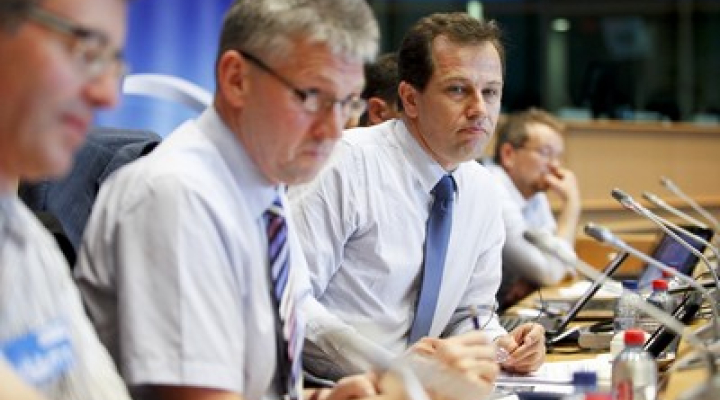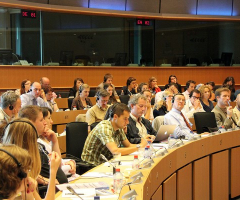About the future of High Nature Value Farming in the EP
MEPs Csaba Sógor (DAHR), George Lyon (Scottish, ALDE) and Iratxe García Pérez (Basque, S&D) organized a conference in the European Parliament about the role and future of the High Nature Value Farming in the Common Agricultural Policy on the 28th of June.
As the chair of the conference, the Hungarian MEP from Transylvania stated that he feels that it is his right and duty to protect European agriculture and quality products, as well as to preserve traditional modes of agricultural production. The idea of High Nature Value Farming has developed over the last 15 years in the European Union. The concept is compatible with the goal to incorporate environmental interests into community policy – said Csaba Sógor and gave the floor to one of the most competent Romanian decision makers in the subject: secretary of state in charge of agriculture, Barna Tánczos who presented the High Nature Value Farming practice in Szeklerland and made references to the situation in the EU as well. The secretary of state explained that the High Nature Value Farming entity is underfinanced and that he considers that it should be integrated in the Natura programme, so that farmers can be convinced about the sustainability of the specific and traditional methods of production. Long-term contracts that encourage the four million micro- and small farmers, as well as land owners preserving the traditional ways of agricultural production can provide an opportunity for this.
Scottish MEP George Lyon believes that the future of European agriculture lies within the proper coordination of environmentally friendly policies that are based on the local communities. – We expect a heated debate, we point at the new member states, but everything depends on the production rate and budget – said the MEP. He declared that it would be a great step forward if the regulations would become less strict and urged direct payments in the case of High Nature Value Farming. A case study in the MEP’s constituency was presented by Paul Watson who spoke on behalf of the Royal Birds Society for the Protection of Birds. Watson considers that the EU should provide monitoring aid for regions with High Nature Value Farming and integrate the production method in the development of rural areas so that those affected can apply for European funding under other EU programs as well.
Basque MEP Iratxe García Pérez of the Agriculture and Rural Development Committee of the EP made reference to the agricultural package that is most likely to come before the plenary session of the EP in October . He pointed out the importance of environmental issues that should not be considered obstacles in front of economic development, but rather part of the benefits. EU Member States are bound to respect ecologic regulations, but due to the deficiencies in food safety of the recent years and the ever increasing demand for food, members of the AGRI Committee want to enlist the High Nature Value Farming and the Natura 2000 program in the primary part of the CAP.
- Local, national and European authorities can do a great deal in order to convince small farmers and land owners, that their future is sustainable if their activity is considered to be a value even from a social, cultural and environmental point of view. It is less costly to fund the already existing High Nature Value Farming program than to correct the environmental and social damages it lack would cause – summed up Csaba Sógor.












